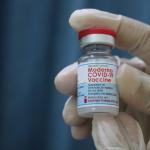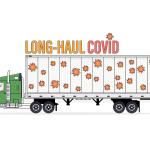The COVID-19 pandemic has been one of the most devastating events in public health in the U.S. over the last half-century. It’s also the most scrutinized health emergency in history.
COVID-19
We have learned a lot about the SARS-CoV-2 virus during the three years of the COVID-19 pandemic. For example, new viral variants, such as the many subtypes of Omicron, are less susceptible to the vaccines developed to protect against th
The peak of COVID-19 infections might be behind us – at least until the next “variant of concern” of the SARS-CoV-2 virus appears – but the scourge of long COVID lives on. And on.
Virtually all infectious disease experts and epidemiologists would unhesitatingly agree with the headline of this article, and yet there are some armchair experts who demur.
Reading the medical literature – that is, articles reporting studies of various aspects of health and disease – can be enlightening. It’s how we docs keep up with new knowledge and progress, after all, but it can also be frustrating – for ex
Is it possible to ever persuade the politically-polarized segment of the vaccine-resistant population to take the jab – thereby avoi
In 1768 Russia (and most of Europe) faced a devastating smallpox epidemic. They didn’t have vaccines then, but there was knowledge of a forerunner called inoculation (or variolation), where pus is taken from a smallpox patient and injected i
If you're sick of (or with) COVID, join the club. It's endless. SARS-CoV-2, the virus that causes the disease, keeps throwing one surprise after another at us in ways that could have never been predicted early in the pandemic.
President Biden’s bout with COVID-19 is illustrative of the debate currently raging about “Paxlovid rebound” — the recurrence of symptoms and of testing positive for SARS-CoV-2 after a seemingly successful five-day treatment course of Paxlovid.
As an undergraduate and grad student, I cut my research teeth working on bacteria. I found their resilience to be amazing; they’ll do anything to survive.












